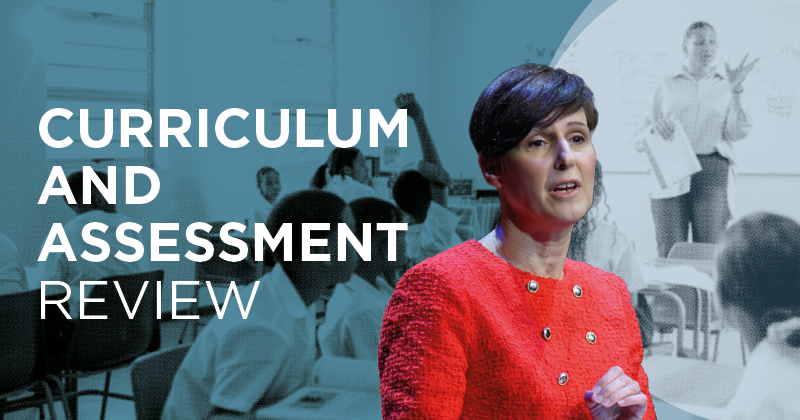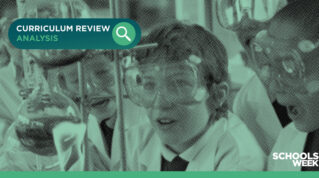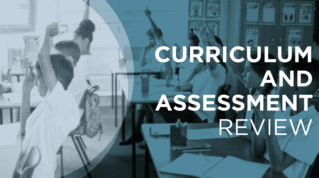The national curriculum review and the government’s response offer a compelling road map to elevate our education system from good to great.
The emphasis on a broad and rich knowledge-based curriculum – rightly a source of national pride – has been retained.
But there is a sharper focus on our children’s preparation for life as global citizens, able to recognise and call out disinformation, protect themselves from financial fraud, maximise the potential of AI and cook nutritious meals.
Shakespeare retains his position within the literary canon, with ‘transient’ texts introduced alongside – the slipperiness of language in its multiple modes seen through a new lens.
Contrary to some critical commentaries, this is not ‘dumbing down’ – quite the opposite.
The curriculum safeguards the core knowledge that has been cemented in our collective consciousness over decades and achieves the shifts necessary as we hurtle through the twenty first century.
So, proposed progress 8 and attainment 8 measures signal both a welcome emphasis on creativity – reflecting amazing career opportunities within the arts and digital media – but with continued affirmation that success in English and mathematics is crucial for everyone’s life chances.
And there is a real sense that foundational gaps in literacy and numeracy will be spotted and addressed early and decisively, essential if we refuse to accept poor outcomes as being the inevitable consequence of disadvantage.
Our curriculum will be ‘rich in knowledge, broad in scope’ – welcome reassurance for the sector.
It will also be inclusive. This is a key aspiration. If we are to realise the potential of our vulnerable pupils – particularly those with SEND – we need to do things differently.
If we can reach the children whose shoes are displayed in sobering rows outside council offices – every pair telling a story of unmet needs – their future and our own as a nation will be so much brighter.
We await further detail on proposed SEND transformation to complement the welcome commitment to supporting teachers’ professional development.
Teachers have been promised wide ranging support – from Oak’s AI lesson assistant, Alia, from a digitized curriculum map showing cross-curricular links, from RISE hubs, from reformed national professional qualifications. This is positive – our teachers are undoubtedly our best asset, the workforce whose dedication has led to the English education system being held in such high regard.
But leaders will need to ensure that their staff aren’t overwhelmed by the dizzying array of opportunities on offer.
The sensible timeline for implementation of the curriculum and its assessment arrangements will need to be translated into manageable schedules in schools to avert overload– and we must remain cognisant of lessons learned from the National Strategies where the potential of excellent materials was lost largely because of the relentless pace of delivery.
Care needs to be taken over the implementation of agreed, evidence-informed frameworks for oracy, reading and writing which will help schools to focus on essential communication skills. They must be located in evidenced best practice and made manageable.
Refreshingly, the power of partnership is strongly emphasised: Best Start Family Hubs carry echoes of previous successful initiatives aimed at supporting parents as their children’s first educators.
The government’s ambitious aim for 90 per cent of children to pass their phonics screening sets the bar high and will be helped by early encounters with stories and rhymes. We have done so much to improve phonics teaching over recent years, with the mandating of synthetic systematic phonics programmes and associated training.
But we have to recognise that some of the issues leading to some children scoring poorly in phonics tests may not be within teachers’ direct control but could indicate the lack of availability of partners – including speech and language therapists and educational psychologists.
Partnership is also seen to be at the heart of extra-curricular enrichment programmes. The inclusion of schools’ enrichment offer in school profiles will provide parents with valuable information. But this isn’t straightforward.
Forming sustainable partnerships requires a huge investment of time and money. We have some inspirational examples of enrichment initiatives sponsored and supported by outward-facing businesses and charitable foundations but we can’t pretend that this is anything approaching a universal entitlement offer.
So, we should be optimistic that the curriculum plans for our children embed the principles of equity and excellence that we champion. We will embrace new learning, find new solutions and advocate for the children on the margins, those who most need a world-class education. If we get this right, we will transform the futures of our children and our country.
















Your thoughts